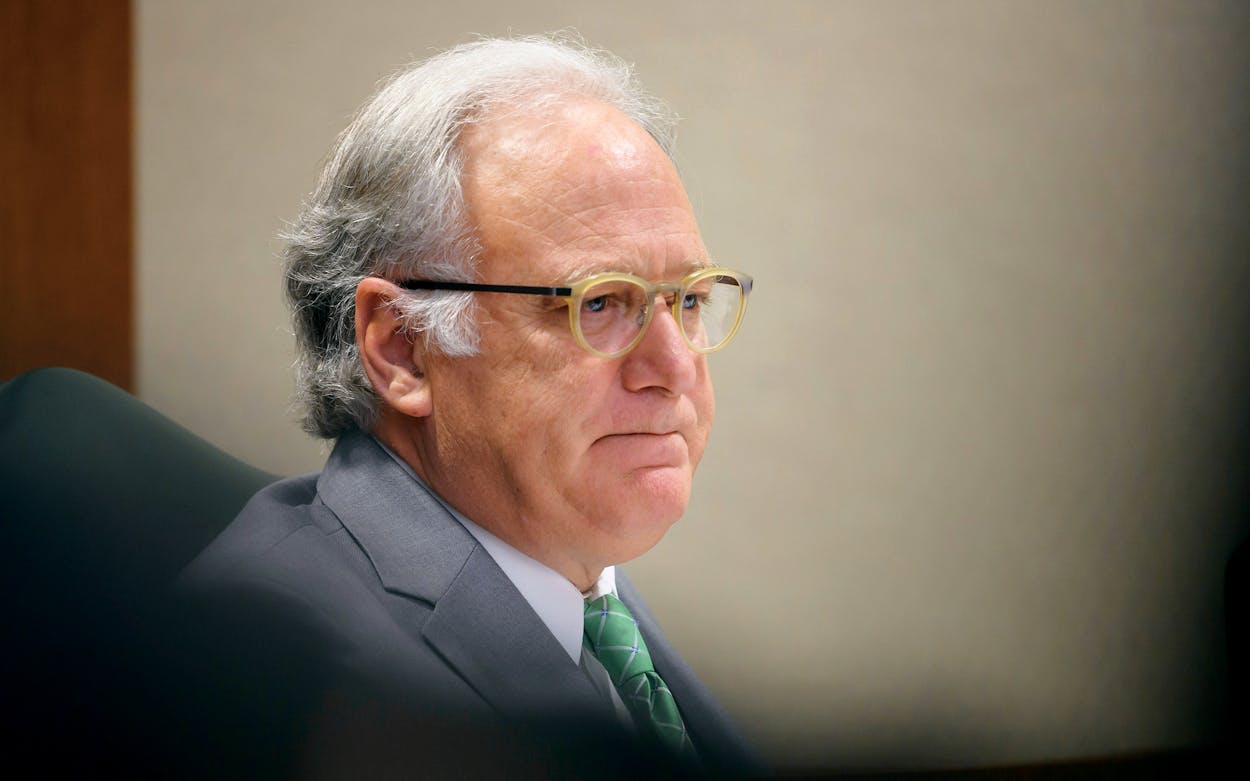The Lord, in his infinite wisdom, has called Kirk Watson, longtime fixture of the Texas Senate, to his final rest. It was announced Tuesday that Watson, a Democrat who represents Austin, was ascending to the place where so many of his predecessors in the upper chamber have gone when their duty had been done—to the ultima sinecure, the last posting, a happier place, a farm upstate: a cushy job in higher education. He joins Kevin Eltife, Robert Duncan, and Tommy Williams in the ivory tower—or, the bureaucracies that administer the ivory tower. At the time of the announcement of its untimely passing, Watson’s senatorial career was just thirteen years old.
Barring the revelation that Watson had dropped an envelope full of quaaludes in front of cops at a Waco train station, in the manner of one of his recently retired colleagues, it seems likely that the death of Watson’s political career is due to natural causes, which is to say, he’s getting older and he got bored and something better came along. The Texas Senate is a mighty boring place, on the whole, more so today than it was when Watson was elected in 2006.
Watson’s announcement that he will be the first dean of the University of Houston’s Hobby School of Public Affairs caused a minor shockwave within the insular community around the Legislature, if only because he has been a leading face of the Senate Democratic Caucus for more than a decade. There’s a divide in that caucus now between experienced senators like John Whitmire and Judith Zaffirini—elected in 1982 and 1986, respectively—and new ones who have only ever known Dan Patrick’s hard-right Senate. The older senators remember a bipartisan-ish chamber where there was a lot of wheeling and dealing to be done, which is to say that it was a fun place to be.
Individual senators do matter, in that events in the Senate are to some degree determined by the personalities and peculiarities of the people involved. And experience still matters: time served in a legislative body produces knowledge and expertise. Watson will be missed particularly for his interest, and expertise, in matters related to health, social services, and child protection, issues that still garner some bipartisan interest.
But Patrick’s elimination of the two-thirds rule in 2015, which required a supermajority of the Senate to consent to hear legislation, means the main thing that matters now in the upper chamber is the Republican majority. Republicans get most of their bills through, and Democrats don’t. The advantage that a great lawmaker provides his allies has been diminished. So the Senate probably won’t be all that different next year.
There will probably be a fierce race to replace Watson: many ambitious Austin politicians, and there are a lot of them, have been waiting for Watson to retire for years. Already, Austin city council member Greg Casar, a democratic socialist, has announced that he’s weighing a run. So has Travis County judge Sarah Eckhardt. Others who haven’t ruled it out include three Austin-area state representatives: Donna Howard, Eddie Rodriguez, and Gina Hinojosa.
As depressing as the Senate has become for Democrats, there are still people, for some reason, climbing over each other to get in. They’ll hoist the Jolly Roger and set each other’s ships ablaze. Their cutlasses will trade warm blood at the meetings of Austin’s local Democratic clubs. Doubloons will fall like rain, and the lash used to weed out the weak. And when Watson’s successor wins the loot, he or she will sit in the chamber politely and periodically take the mic to thank colleagues for so-and-so and wait for Democrats to take over, if indeed they ever do. Eventually, maybe, they’ll get their own cushy job in higher education, and the circle of life will continue.
- More About:
- Politics & Policy
- Texas Senate
- Dan Patrick








